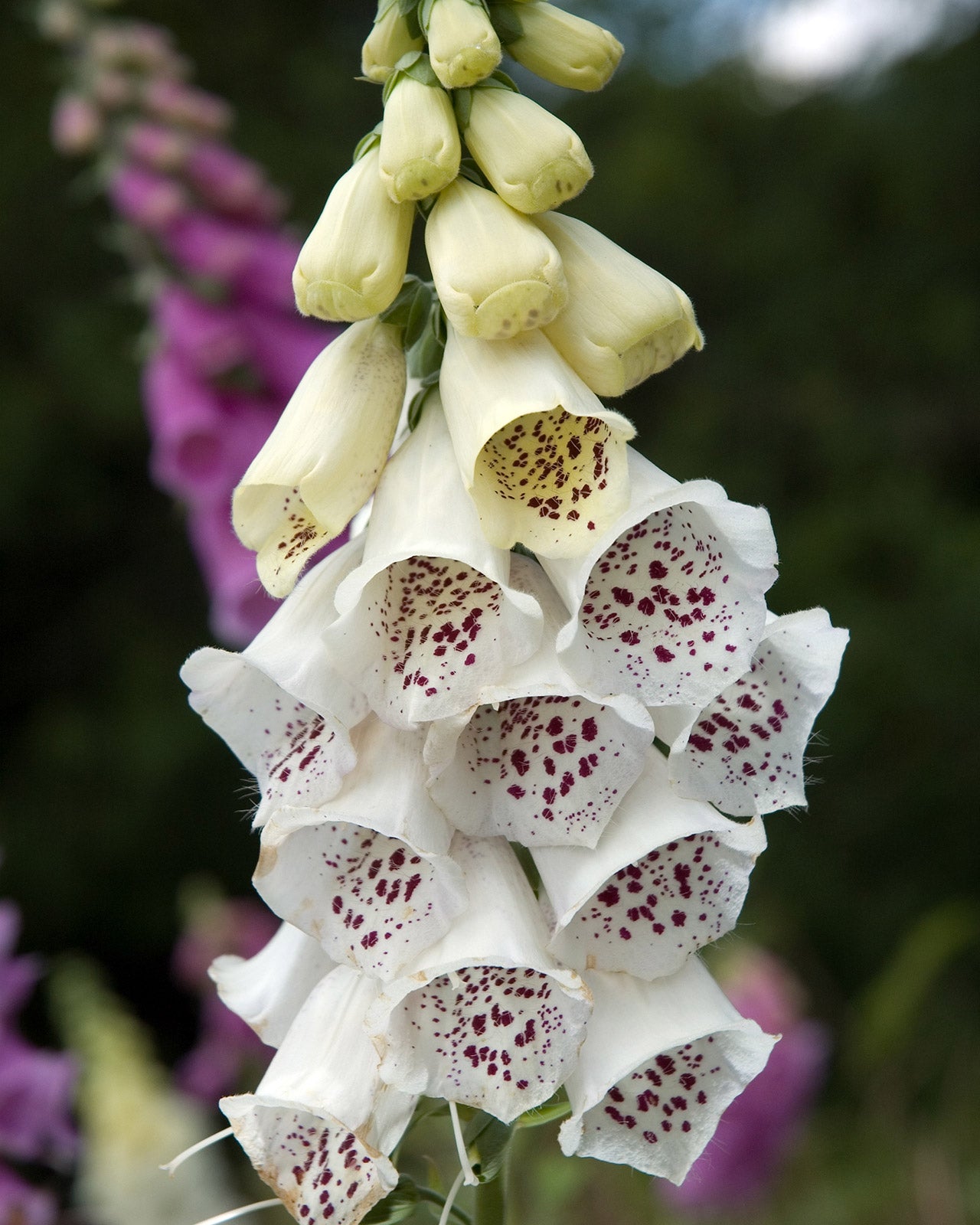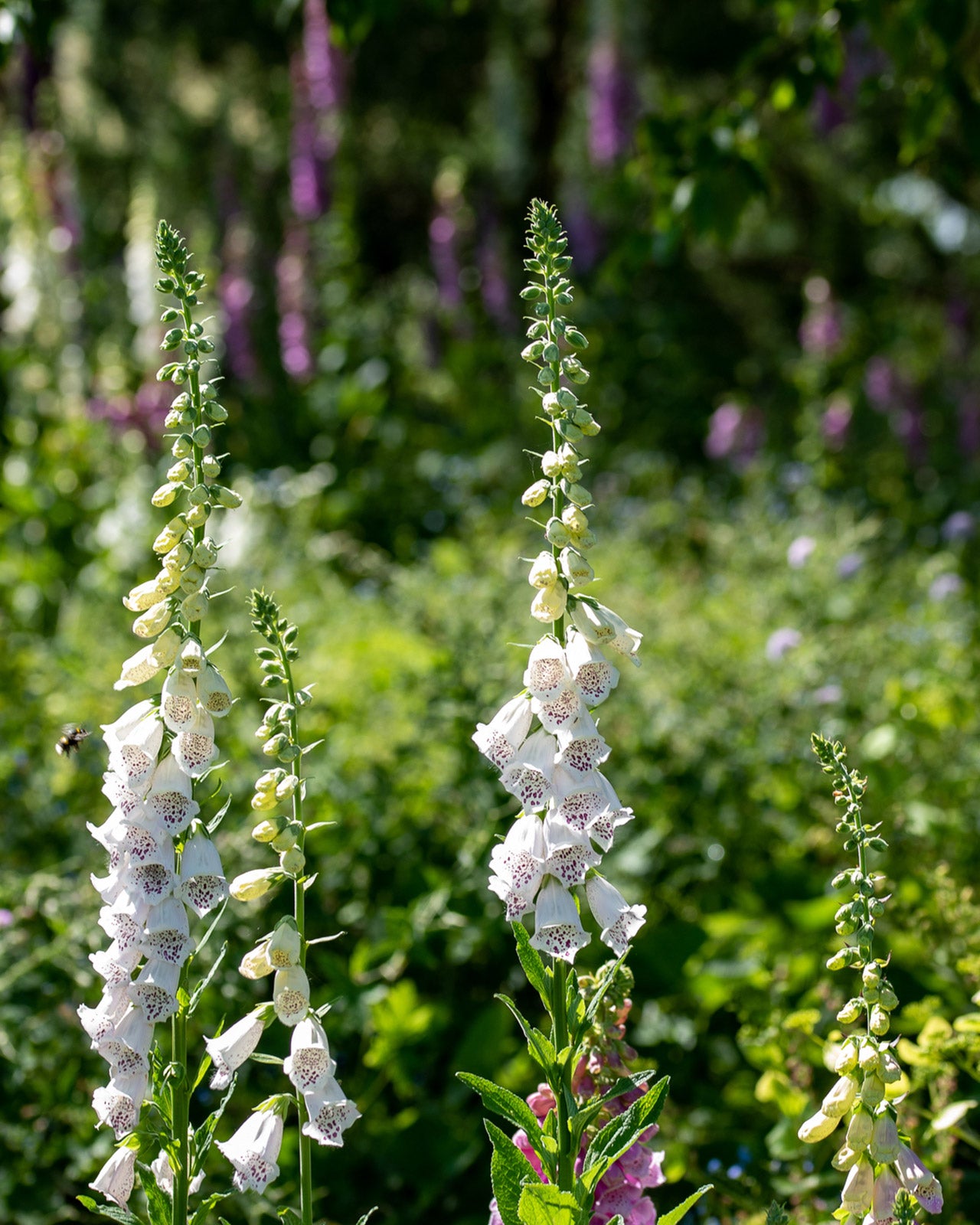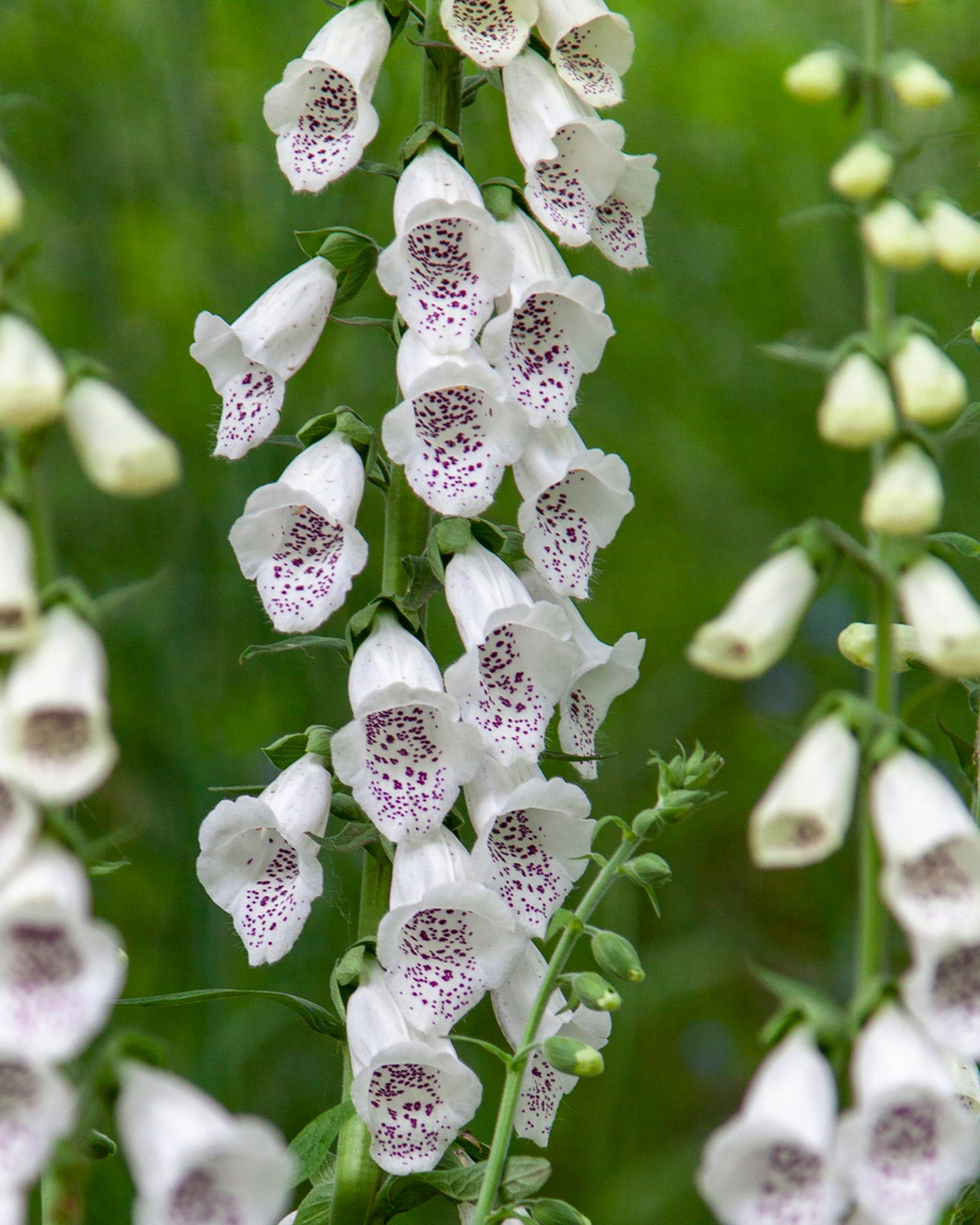


-
Why we like this plant
Digitalis purpurea 'Dalmatian White' is an excellent choice for gardeners looking for a refined, compact foxglove that flowers early and abundantly. Its elegant white blooms brighten shady spots and attract pollinators, making it a valuable addition to wildlife-friendly and cottage-style gardens.
-
About this plant
Part of the Dalmatian Series, Digitalis purpurea 'Dalmatian White' is a compact and fast-growing foxglove, blooming reliably in its first year. It produces tall, upright spikes covered in pure white, bell-shaped flowers with delicate speckled throats, creating a refined and elegant display from late spring to midsummer. This variety is particularly loved for its uniform growth and shorter stature, making it perfect for smaller gardens, borders, and container planting. Highly attractive to bees and other pollinators, it thrives in partial shade but will also grow in full sun with adequate moisture. Like all foxgloves, it is highly toxic if ingested, so caution is advised around children and pets.
-
Key features
- Elegant pure white flowers with speckled throats
- Compact habit, making it ideal for smaller spaces
- Attracts bees and pollinators
- Blooms in its first year for quick impact
- Excellent for cottage gardens and mixed borders
-

Height and
spread -

Growth
habitUpright, clump-forming
-

Moisture
Prefers moist soil; avoid prolonged dryness
-

Position in
the GardenCottage gardens, wildlife borders, woodland edges, containers
Planting guide
- Space plants 30cm apart for best airflow
- Plant in groups for a naturalistic effect
- Best in humus-rich, slightly acidic to neutral soil
Care tips
- Plant in moist, well-drained soil in partial shade
- Water regularly, especially in dry conditions
- Deadhead faded flowers to prolong blooming
- Allow some flowers to go to seed for naturalising
- Divide or replant seedlings every few years for continuous growth
Winter care
- Leave basal foliage intact for winter protection
- Mulch around the base in colder regions
- Cut back dead flower stalks in late autumn or early spring












